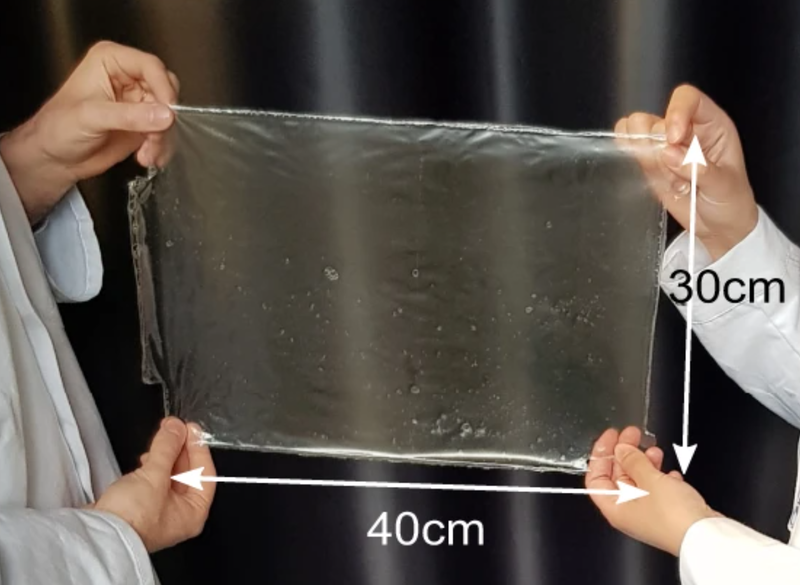- Researchers at the University of Cambridge stumbled upon a promising solution for our increasing plastic pollution problem.
- Plant-based "vegan spider silk" could replace the pollutants found in everyday packaging materials, according to their paper, published in Nature Communications.
- A Cambridge spinoff called Xampla will commercialize the technology, with plans to release the synthetic spider silk in the form of sachets and capsules in late 2021.
Researchers from the University of Cambridge may have a viable solution to the single-use plastic dilemma: spider silk. Or, more accurately, a plant-based synthetic polymer that mimics the composition of spider silk, but doesn't actually come from the eight-legged arthropods.
➡ You're obsessed with science. So are we. Let’s nerd out over it together.
The researchers modeled their polymer after spider silk due to its durability and strength—if you could scale up a spiderweb to human size, it would be capable of trapping an airplane. In fact, spider silk is five times stronger than steel, and half as strong as Kevlar; it's considered one of the strongest naturally occurring materials on Earth.
Incredibly, the scientists developed the synthetic material while studying something else altogether: protein formation and interactions. It all began with a series of protein analyses in the lab of Tuomas Knowles, a professor at the Yusuf Hamied Department of Chemistry. He wanted to understand why, in some instances, proteins become malformed, leading to diseases and health problems in humans.
"We normally investigate how functional protein interactions allow us to stay healthy and how irregular interactions are implicated in Alzheimer's disease," Knowles said in a Cambridge news release. "It was a surprise to find our research could also address a big problem in sustainability: that of plastic pollution."
This protein-related research prompted Knowles and his team to consider how some materials, like spider silk, could be so strong given their weak molecular bonds. Spurred on by that question, the team began thinking about how they could replicate spider silk's molecular bond formation and self-assembly in other proteins.
The researchers found success using soy protein isolate—which has an entirely different molecular composition from spider silk—due to the fact that all proteins are comprised of polypeptide chains. Because the researchers had the same base material to work with, they were able to duplicate the dense molecular formation of spider silk with the soy protein isolate. They describe the process in a June 10 paper published in the journal Nature Communications.
Using sustainable ingredients, like plant proteins, the researchers developed the "vegan spider silk," which looks similar to plastic, but is compostable and has the potential for use in various applications, including as a water-resistant coating. The hope is that this new material will be an effective, environmentally friendly alternative to the harmful microplastics and single-use plastics found in everyday products from packing materials to laundry detergent capsules.
A Cambridge University spinoff called Xampla, which focuses on replacements for single-use plastic and microplastics, will commercialize the technology. You can expect to see the synthetic spider silk later this year in the form of single-use sachets and capsules.
Resource: https://www.popularmechanics.com/







